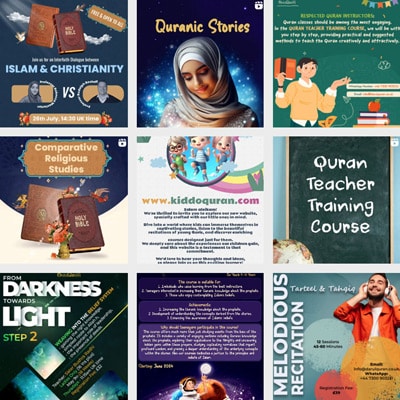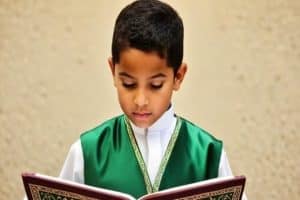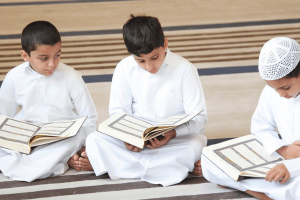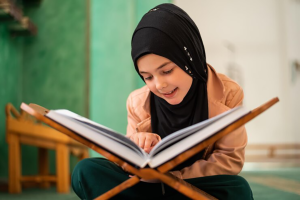If a seeker of knowledge embraces death while he is on learning position, he is regarded as a martyr.
Prophet Muhammad (S)
Table of Contents
ToggleDiscover the power and significance of music in Islamic culture. Explore the historical background, diverse genres, and the role of music in rituals and ceremonies.
Unravel the controversies and debates surrounding music in Islam, and understand its impact on Muslim communities. Delve into the challenges faced by Muslim musicians and their adaptations to cultural and religious expectations for music. Appreciate the diversity of viewpoints and the importance of fostering dialogue and understanding.
Misconceptions about music in Islam
Contrary to popular belief, music has a rich and vibrant history in Islamic culture. Many misconceptions stem from a limited understanding of Islamic teachings.
By exploring the dimensions of music in Islam, we can challenge these misconceptions and appreciate the beauty and significance it holds.
Music in Islamic Tradition
Historical background of music in Islam
Music has been a part of Islamic tradition since the early days of the religion. It has been used in various contexts, including worship, celebration, and storytelling.
The historical context of music in Islam is vast, spanning various regions and time periods.
The earliest forms of Islamic music can be traced back to the time of Prophet Muhammad, where music was used as a means of worship, remembrance, and storytelling.
The development of Islamic music continued through the expansion of the Islamic empire, incorporating influences from the diverse cultures it encountered.
One of the key figures in the historical background of music in Islam is Al-Farabi, a renowned philosopher, scientist, and musician. He made significant contributions to the field of music in Islamic tradition, particularly in the area of music theory.
His work, “Kitab al-Musiqa al-Kabir” (The Great Book of Music), served as a foundational text for the study of music in Islamic tradition.
Al-Farabi’s writings on the philosophy of music and its ethical implications have had a lasting impact on Islamic music scholarship.
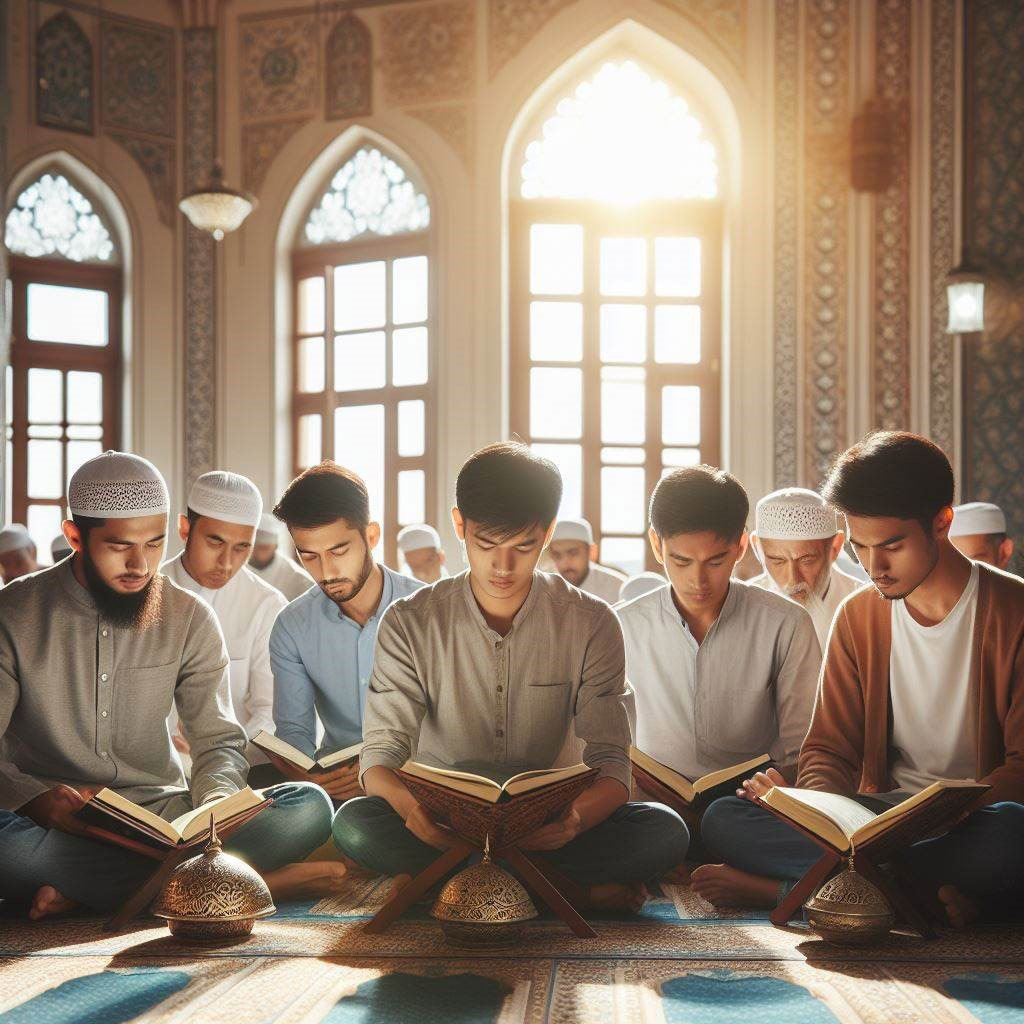
Impact of Music in Islamic Tradition and Tafsir (the science of explanation of Quran, the sacred scripture of Islam) of the Holy Quran
The impact of music in Islamic tradition and Tafsir of the Holy Quran is multi-faceted, encompassing spiritual, cultural, and ethical dimensions.
Music has been used as a means of expressing devotion and connecting with the divine in Islamic worship. Sufi music, in particular, has played a significant role in the spiritual life of Muslims, often serving as a tool for achieving spiritual ecstasy and union with the divine.
The poetry and music of Sufi traditions, such as Qawwali in South Asia and Sama in the Middle East, have contributed to the rich tapestry of Islamic music and spirituality.
In the Tafsir of the holy Quran, music is approached from a theological and ethical perspective. The Holy Quran does not explicitly forbid or condone music, leading to diverse interpretations among Islamic scholars.
Some interpretations emphasize the moral and ethical considerations of music, cautioning against its potential to lead individuals away from the remembrance of God.
Others emphasize the cultural and communal significance of music in Islamic tradition, viewing it as a means of expressing love, joy, and creativity within the boundaries of Islamic ethics.
Influential Individuals in the Field of Music in Islamic Tradition and Tafsir of the Holy Quran Several influential individuals have contributed to the field of music in Islamic tradition and Tafsir of the holy Quran, shaping the discourse and practice of music within the Islamic context. One such figure is Ibn Hazm, a prominent Andalusian scholar and jurist known for his work in ethics and theology.
In his famous work “Al-Muhalla,” Ibn Hazm addressed the permissibility of music in Islamic tradition, providing a detailed analysis of the various perspectives and arguments surrounding the topic.
His writings continue to be a significant source for the study of music in Islamic tradition.
Al-Ghazali, another influential figure in Islamic scholarship, discussed the ethical implications of music in his renowned work “Ihya Ulum al-Din” (The Revival of the Religious Sciences).
Al-Ghazali’s reflections on the spiritual and ethical dimensions of music have had a profound impact on Islamic ethical discourse, shaping the understanding of music within the framework of Islamic ethics.
Various Perspectives and Well-Reasoned Analysis
The question of music in Islamic tradition has elicited diverse perspectives, ranging from outright prohibition to enthusiastic embrace. The debate on the permissibility of music in Islamic tradition is rooted in differing interpretations of Islamic scripture, cultural practices, and ethical considerations.
Some Islamic scholars and jurists argue that music distracts individuals from the remembrance of God and leads to immoral behavior, citing specific Hadiths and verses from the Holy Quran to support their position. Others argue that music can be a source of spiritual solace, cultural expression, and communal bonding, emphasizing its positive impact on human emotions and creativity.
Our well-reasoned analysis of this complex issue must take into account the various perspectives and their respective arguments. It is essential to consider the cultural and historical contexts in which these perspectives have emerged, as well as the broader ethical and theological implications of music in Islamic tradition.
We must also acknowledge the diversity of Islamic scholarship and practice, recognizing that there is no singular “Islamic” perspective on music. Rather, there exist multiple interpretations and practices that reflect the richness and dynamism of Islamic tradition.
Positive and Negative Aspects of Music in Islamic Tradition
The positive aspects of music in Islamic tradition are evident in its role as a tool for spiritual connection, cultural expression, and communal celebration.
Sufi music, in particular, has been a source of spiritual inspiration and solidarity for many Muslims, fostering a deep sense of devotion and love for the divine.
Additionally, music has served as a means of preserving and transmitting Islamic traditions, embodying the rich diversity of Islamic cultures and histories.
However, there are also negative aspects to consider, particularly in the ethical and social dimensions of music in Islamic tradition. Some scholars and adherents express concern about the potential for music to lead individuals astray from the ethical teachings of Islam, particularly in its portrayal of love and sensuality.
Additionally, there are concerns about the commercialization and commodification of music, which may lead to the exploitation of artists and the proliferation of morally questionable content.
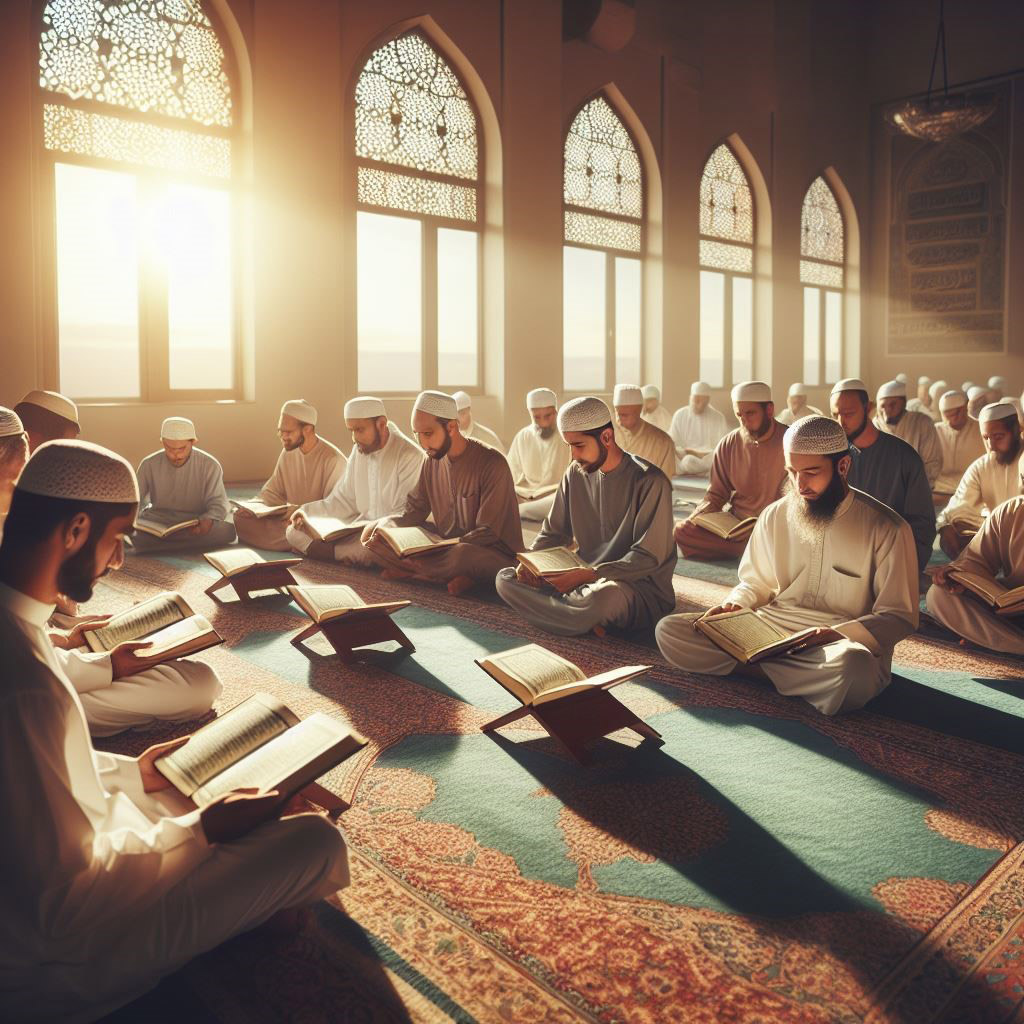
Potential Future Developments and Conclusion
As we look towards the future, it is essential to consider the potential developments related to music in Islamic tradition and Tafsir of the Holy Quran.
The evolving social, cultural, and technological landscape presents new opportunities and challenges for the practice and interpretation of music within the Islamic context.
It is crucial for Islamic scholars and practitioners to engage in thoughtful dialogue and reflection on the ethical, spiritual, and cultural dimensions of music, seeking to cultivate a richer and more nuanced understanding of its role in Islamic tradition.
The historical background of music in Islam and Tafsir of the Sacred Quran is complex and multifaceted, encompassing diverse perspectives, key figures, and ethical considerations.
The impact of music in Islamic tradition is evident in its spiritual, cultural, and communal significance, as well as in the ongoing debate and interpretation surrounding its permissibility.
Influential individuals have contributed to the field, shaping the discourse and practice of music within the Islamic context. Our analysis of this topic must consider both the positive and negative aspects, while also acknowledging the diversity of Islamic scholarship and practice.
Looking towards the future, it is vital for Islamic scholars and practitioners to engage in thoughtful dialogue and reflection, seeking to promote a deeper and more comprehensive understanding of music in Islamic tradition.
Islamic music genres
Islamic music encompasses a diverse range of genres, each with its own unique style and purpose. From the soul-soothing melodies of Islamic hymns to the rhythmic beats of nasheeds, these genres reflect the multifaceted nature of Islamic spirituality and cultural expression.
Role of music in rituals and ceremonies
According to the Tafsir (interpretation) of the Holy Quran, music is mentioned in various contexts, and its role in Islamic rituals and ceremonies is often interpreted in different ways.
Some scholars interpret the Quranic verses as prohibiting music, while others argue that the use of music in religious rituals is permissible as long as it does not lead to sinful behavior or distraction from the remembrance of Allah.
However, despite the varying interpretations, music has been a common feature in various Islamic rituals and ceremonies like Eid. For example, Sufi practitioners often use music as a means of spiritual meditation and worship.
Sufi music, commonly referred to as Qawwali or Sufi devotional music, is a prominent feature of Sufi rituals and ceremonies, where the use of music is believed to facilitate a deeper connection with the divine and aid in the spiritual journey of the worshipper.
In addition, music is also a common feature in Islamic wedding ceremonies and celebrations.
Traditional wedding songs and music are used to enhance the joyous occasion and create a festive atmosphere for the newlyweds and their guests.
The use of music in these ceremonies is seen as a means to express happiness and gratitude for the union of two individuals under the blessings of Allah.
Furthermore, music is also used in various Islamic rituals and ceremonies associated with the holy month of Ramadan and other religious festivals.
During the month of Ramadan, it is common to hear the sounds of traditional nasheeds (Islamic songs) and other forms of spiritual music being played in mosques and Muslim households, as a means of expressing the joy and gratitude for the blessings of the month.
Overall, the role of music in Islamic rituals and ceremonies is considered to be a means of spiritual expression and enhancement, rather than a form of entertainment or distraction.
While the use of music in Islamic rituals and ceremonies remains a topic of debate among scholars and practitioners, the cultural and historical significance of music in the Islamic tradition cannot be denied.
It serves as a means of enhancing the emotional and spiritual experience of worshippers, and it plays a significant role in expressing joy, gratitude, and devotion to Allah during various Islamic rituals and ceremonies.
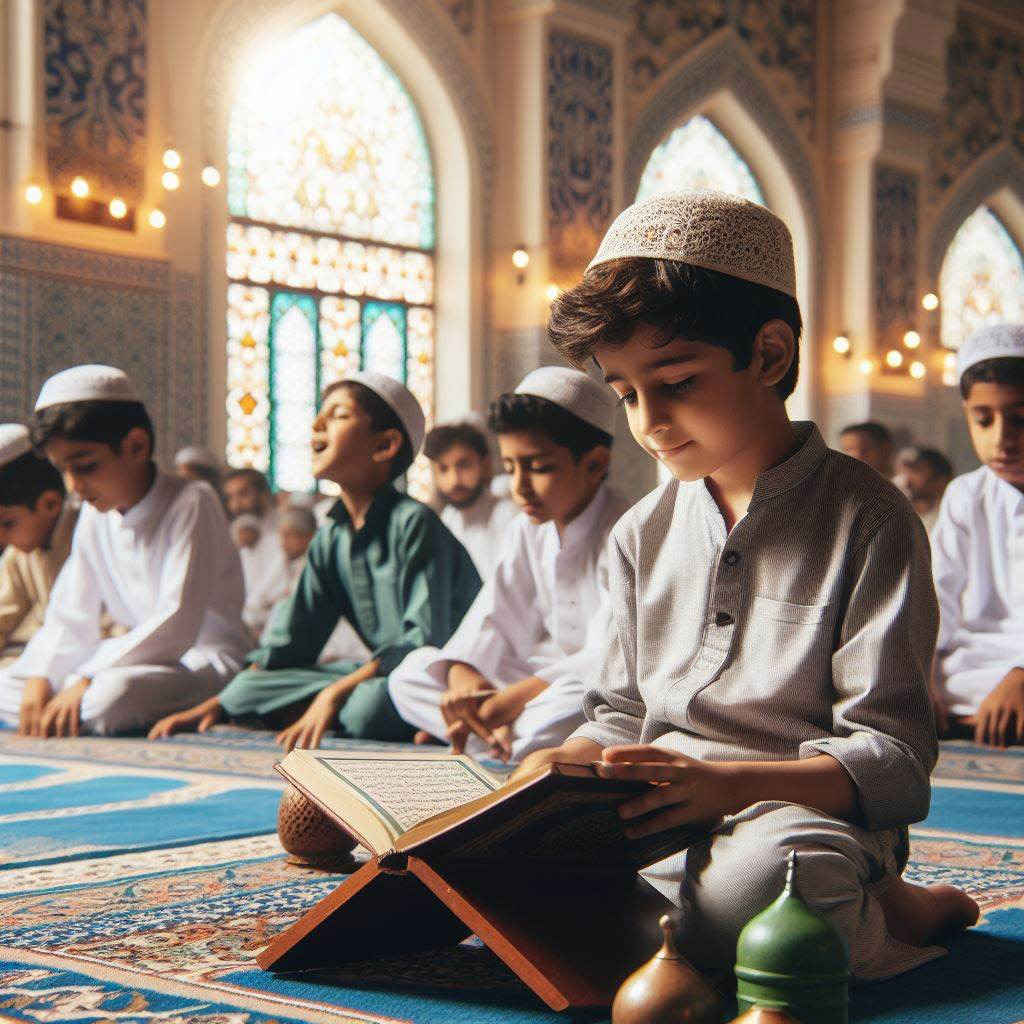
Controversies and Debates
Different interpretations of Islamic teachings on music
Islamic scholars hold varying opinions regarding the permissibility and scope of music in Islamic practices. These differences stem from diverse interpretations of religious texts, leading to ongoing debates and discussions within the Muslim community.
Arguments for and against music in Islam
Supporters of music in Islam argue that it enhances spiritual connection, cultural preservation, and emotional expression. Opponents cite concerns over potential distractions from religious obligations and the potential for music to deviate from Islamic principles.
Impact of Music in Muslim Communities
Cultural significance of music in Muslim communities
Music serves as a powerful tool for preserving cultural heritage and transmitting values across generations in Muslim communities worldwide. It plays a vital role in celebrations, rituals, and everyday life, fostering a sense of identity and belonging.
Influence of music on Muslim identity and expression
Music provides a platform for Muslims to express their unique experiences, thoughts, and emotions.
It has the power to bridge cultural gaps, build connections, and create a sense of camaraderie among individuals with diverse backgrounds and perspectives.
Challenges and Adaptations:
Challenges faced by Muslim musicians
Muslim musicians often grapple with societal expectations, cultural norms, and religious considerations that impose limitations on their creative expression. Balancing their artistic pursuits with their faith can be a complex and evolving journey.
Ways Muslim musicians adapt to cultural and religious expectations
Despite the challenges, Muslim musicians find innovative ways to navigate their artistic paths while upholding their cultural and religious values.
They explore alternative genres, incorporate traditional Islamic elements, and engage in meaningful dialogue to bridge the gap between art and faith.
Appreciating the dimension of music in Islam requires acknowledging the diverse viewpoints and understanding the historical, cultural, and spiritual aspects it encompasses.
By fostering dialogue and understanding, we can create an inclusive space where the power and beauty of music in Islamic culture can be celebrated and appreciated.





